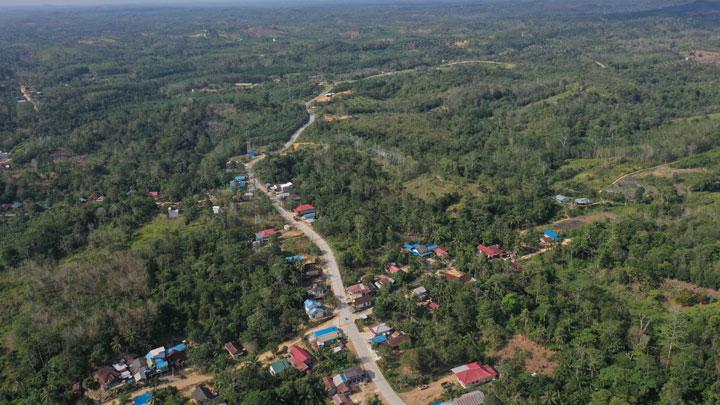Capital Blunder
Translator
Tempo.co
Editor
Laila Afifa
Sabtu, 7 September 2019 12:15 WIB

TEMPO.CO, Jakarta - President Joko Widodo must stop his plan to move the nation’s capital. The series of reasons that he gave when announcing East Kalimantan as the prospective location for the new capital city only showed that there is no need to implement this proposal. This move could become Jokowi’s biggest blunder of his second term.
So far, the plan to relocate the capital gives the impression of not being transparent. The selection of North Penajam Paser Regency and Kutai Kartanegara Regency, East Kalimantan was decided very quickly. The National Development Planning Ministry only handed over the results of the study to move the capital to Jokowi four days before the announcement. The detailed analysis claimed to have been set over three years is mysterious because it has not been published. Therefore, it is right that we call this decision arbitrary.
Moving the state capital is not a taboo. In the last century, at least 30 countries have moved the center of government for a variety of reasons. For example, Brazil moved its capital from Rio de Janeiro to Brasilia to bring about more equal development. The military regime of Myanmar relocated the central government to an isolated region in order to preserve its hold on power.
Therefore, we need to ask: what are the government’s arguments for building a new capital? Unfortunately, Jokowi’s explanation resembled the contents of the presentation by the National Development Planning Agency which was outlined in a number of discussion programs: shallow and inclined to run away from the problem. The Rp466 trillion plan to move the capital is apparently needed because Jakarta and Java are too heavily populated, congested and under threat of a water crisis. We believe the government should deal with these problems, not abandon them by making a new capital.
The excuse that moving the capital is to bring about more equal and fair development also makes no sense. With the right strategy, we will be able to bring about fairer development without having to move the capital. The only people who would directly feel the economic benefits from moving the capital are those in East Kalimantan, not in all the other provinces outside Java.
Rather than using the money to move the capital, some of these hundreds of trillions of rupiah would be better used putting things right in Jakarta and Java. Further funding could be used to implement a more even development strategy in disadvantaged provinces.
The political elite and the bureaucracy around the center of power should not allow President Jokowi to take a wrong decision just to show off. They should be embarrassed and offer thanks to senior economist and former minister Emil Salim and Dorodjatun Kuntjoro-Jakti who have thought clearly and expressed strong opposition to the plan to move the capital. Emil has even said that the decision is irresponsible because it abandons the problems of Jakarta.
The government should reexamine and reveal the details of the plan to move the capital to the public. The huge cost that will have to be borne by the state, as well as the ecological impact that will be caused by the prospective new capital, needs to be explained. History shows that the relocation of capitals in many nations has not always gone smoothly or successfully. Corruption flourishes in projects to build new capitals.
The House of Representatives should take a critical stance on the plan to move the capital. This weighty decision should also consider the economic situation and the interests of the whole of the population, not simply the interests of a few members of the elite in power that will benefit from the project to relocate the capital.
Read the Complete Story in this Week's Edition of Tempo English Magazine




















